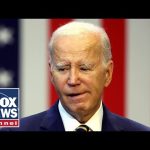The controversy surrounding Jimmy Kimmel and his remarks about the tragic killing of Charlie Kirk lays bare the deep flaws in today’s left-leaning media establishment. Instead of responsibly handling a sensitive story, Kimmel wilted behind partisan satire, recklessly suggesting that the shooter belonged to the MAGA movement, even as emerging details pointed to a suspect with entirely different ideological leanings. This reckless pattern—weaponizing political comedy to smear anyone right of center—doesn’t foster unity or honest debate; it simply fuels the fires of division.
Kimmel’s rush to frame the incident through a biased lens echoes the mainstream media’s dogged pursuit of narrative over truth. Rather than take time to examine the evidence, he leveraged his influential platform to paint conservatives and Trump supporters as complicit, disregarding the facts and diminishing the tragedy’s complexity. Such actions spotlight a grave issue: entertainers granted nightly access to millions of Americans now function as partisan activists, peddling politically motivated misinformation while avoiding serious accountability.
In a striking rebuke, Disney and ABC pulled Kimmel’s show off the air indefinitely, sending shockwaves through the industry and exposing the rising frustration—shared not just by conservatives but even by corporations weary of the toxicity fueling their airwaves. For too long, networks have tolerated ideologically charged content under the guise of entertainment. Now, as affiliates like Nexstar and Sinclair joined the boycott, it’s evident that local communities and even business leaders will no longer accept one-sided, sensational programming at the expense of responsible reporting and real dialogue.
The public response has been swift and resolute. Millions demanded accountability for Kimmel’s reckless comments, and major broadcasters cited a responsibility to ensure constructive, balanced programming. In a free society, the press and media figures are answerable to the public—and the willingness of networks to preempt content is an overdue recognition of that principle. It marks a pivotal moment: Americans are not powerless, and they’re signaling that media bias and partisan misinformation will no longer go unchallenged.
Ultimately, this episode should serve as a reminder for media elites that freedom of speech comes with the burden of truthfulness and respect for the audience. The fact that Kimmel faced consequences for crossing the line is a welcome development, and it’s essential that viewers and corporations alike continue to demand integrity from those who shape our national conversation. The saga may foreshadow a more conscientious era for American media—one where the bias and division of recent years yield, at last, to a culture of genuine accountability and factual reporting.




